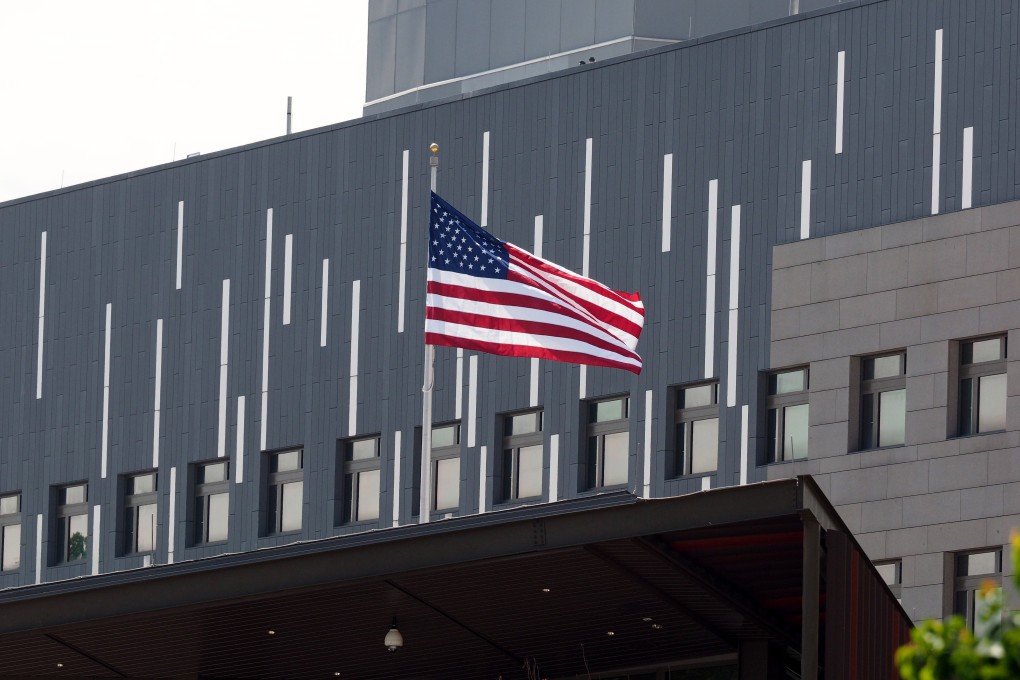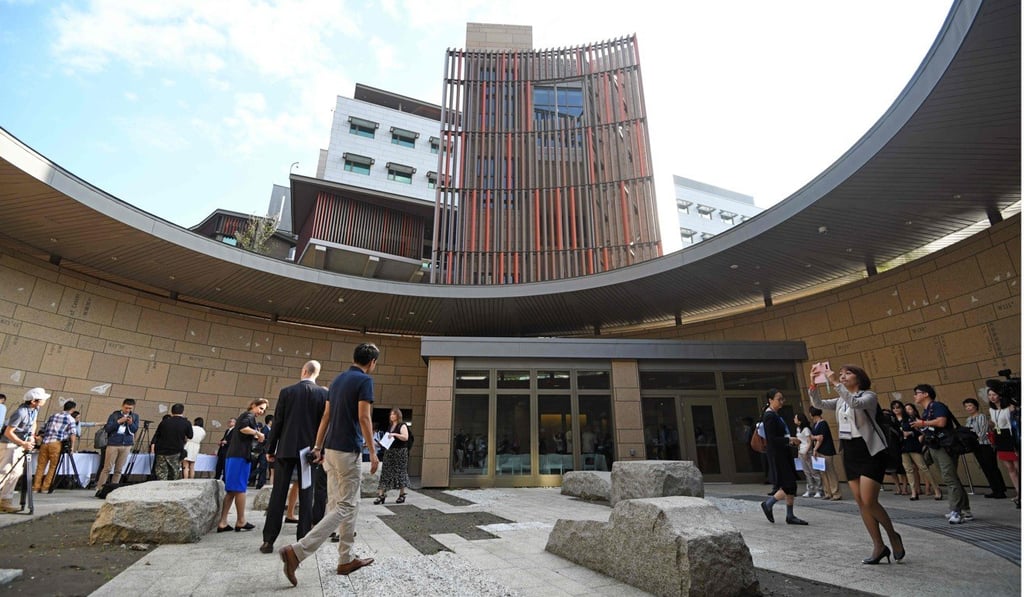US prepares to open new de facto embassy in Taipei amid ‘policy shift’ on Taiwan
- Nearly 500 staff – including military personnel – will move to the US$255 million American Institute in Taiwan complex on May 6
- Analysts say AIT has become ‘a lot more high-profile’ since Donald Trump became president, as calls grow for Washington to elevate ties with the island

The United States will move its de facto embassy in Taiwan to a new site next month, amid what analysts see as a shift in US policy on the self-ruled island since Washington switched diplomatic recognition from Taipei to Beijing 40 years ago.
Nearly 500 staff – including active US military personnel – will relocate to the brand new US$255 million hillside complex in the Neihu district of Taipei on May 6.
They will leave behind the old premises on the former site of the US Military Assistance Advisory Group that was set up to defend Taiwan against any military action from Beijing before 1979.
The new American Institute in Taiwan (AIT), which took more than nine years to build, will occupy a five-floor office and other buildings that take up about one-third of the 6.5-hectare (16-acre) site.

The first consular facility to be entirely planned and built by a foreign representative office in Taiwan, it was described as a “symbol of the strength and vibrancy of US-Taiwan partnership in the 21st century” by Marie Royce, US assistant secretary of state for educational and cultural affairs, during a dedication ceremony in June.